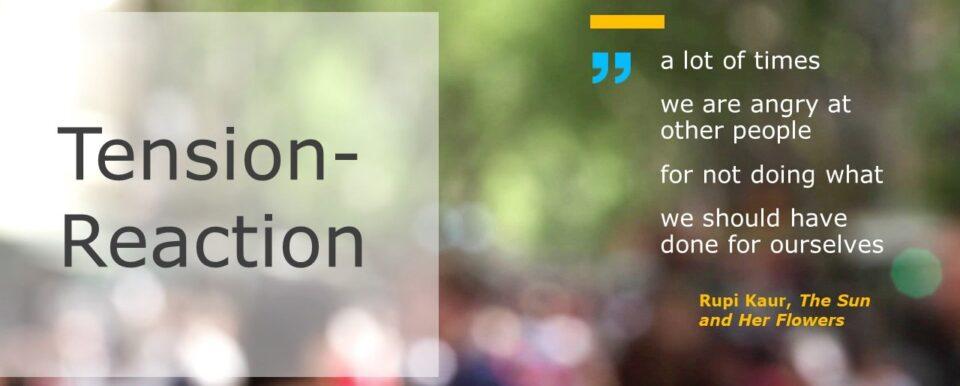This series of emails will explore tension-reaction behavior and the predictable ways each Behavior Style tends to react under stress and tension.
What is Tension-Reaction Behavior?
Many things can trigger negative emotional intensity in relationships, including things like unmet expectations, inconsiderate comments, a values violation, or receiving incorrect information. One common trigger is when someone does things that deny our behavior style needs because that typically creates confusion and frustration. When people experience this type of stress, they look for ways to reduce the overload. Some will do this by withdrawing, others by dictating, some by becoming compliant, and others by becoming more expressive. These responses to stress are types of tension-reaction behavior.
Tension-reaction behavior is an exaggerated extension of a person’s usual behavior style. For example, a process-oriented person may become even quieter than usual and withdraw to re-examine the situation, while an expedient-oriented individual may become so task-focused they are completely unaware of how people feel.
Here are three tips for managing tension-reaction behavior:
- Recognize when you or others are discharging tension. Pay attention to your own thoughts, feelings, and behaviors, as well as the thoughts, feelings, and behaviors of others. If you notice that you or someone else is becoming withdrawn, emotional, or defensive, it may be a sign of tension-reaction behavior.
- Identify the needs of the people involved. Once you have recognized tension-reaction behavior, try to identify the underlying needs of the people involved. What are they trying to achieve? What are they afraid of?
- Initiate options that reduce the cause of the tension. Once you understand the needs of the people involved, you can start to look for ways to reduce the tension. This may involve taking action to meet the needs of others, or it may simply involve taking a break from the situation.
Here are two important things to remember:
- Two people in tension-reaction cannot communicate effectively. If you are feeling stressed or defensive, it is important to focus on your own tension and take care of your needs before trying to communicate with someone else who is also feeling stressed or defensive.
- Tension-reaction behavior is most difficult to control when it is personally directed at you. If your needs are being denied, it may seem easier to blame others, or justify your behavior and actions than it would to focus on meeting someone else's needs. However, this is the time when it is most helpful to step away from the situation, reevaluate, and determine the most productive options for meeting the needs of both people involved.
By following these tips, you can learn to manage tension-reaction behavior and build stronger relationships.
If you have any questions or comments:

